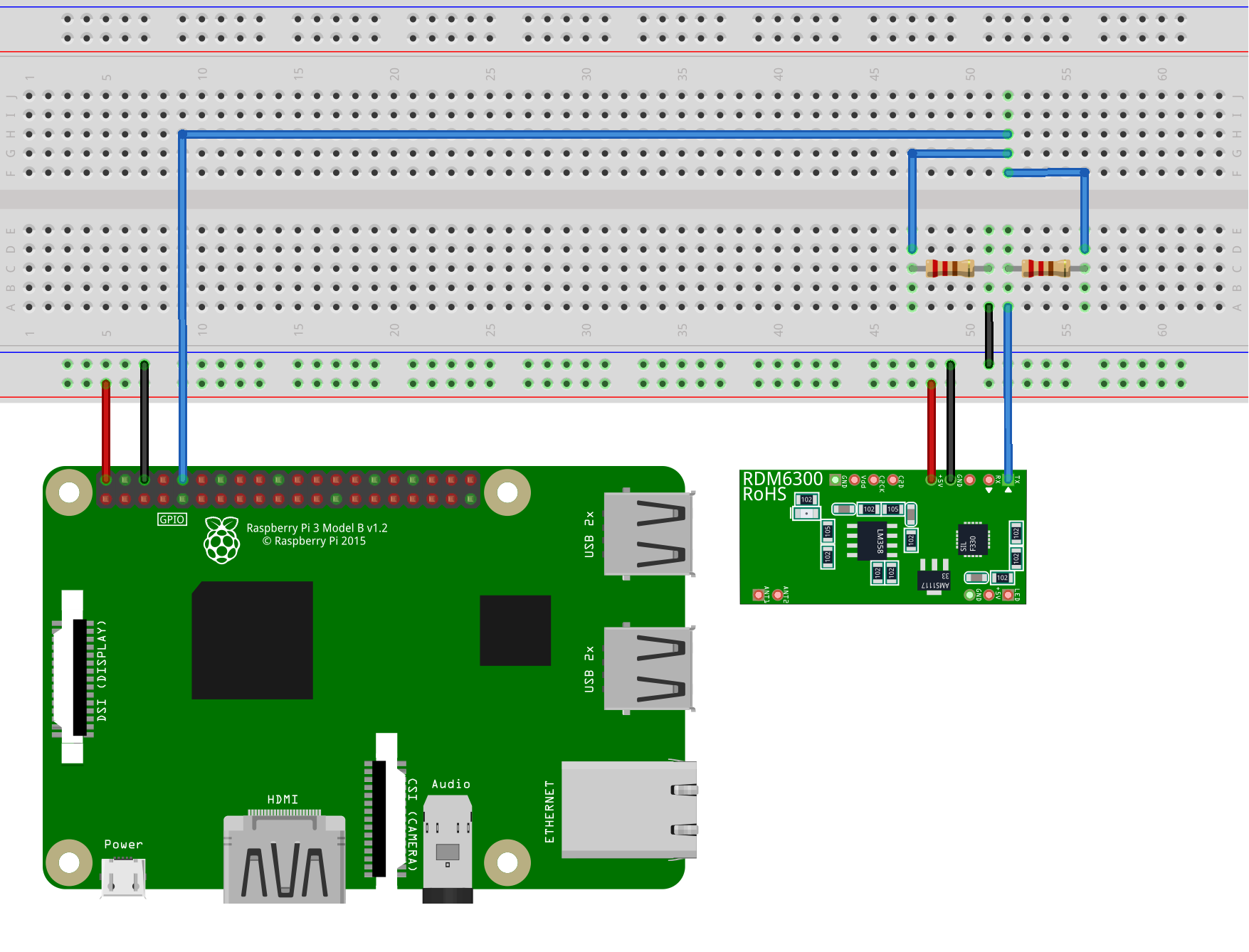The project is primarly geared towards using the RDM6300 with a Raspberry PI and Python 3.
The unit tests are passing with Python 2, so it should work (tm), but I am using python3 for developing the module.
In theory the module should be working with anything that is compatible with the EM4100 wire protocol.
Please note that wiring the RDM6300 to an RPI is not entierly trivial (either it will not work, or you are risking frying your PI), so before tring this out please make sure you had read my blog post on this: https://mad-tinkerer-me.medium.com/rfid-with-raspberry-pi-on-the-cheap-766ae0b6c97e
The reader code has almost 100% unit test coverage, so the code should be quite stable.
If you don't want to go over the whole blog post, then here's the wiring diagram for the project:
Note: the resistors are matching resistors, preferrably something around 1-2 kOhms
Please see the API documentation here
Assuming that you had wired the RDM6300 correctly you can execute the following to create a working environment:
$ virtualenv -p python3 virtualenv
$ . virtualenv/bin/activate
$ pip install rdm6300
Afterwards you can use this code to start reading with the RFID reader (examples/simple.py):
import rdm6300
reader = rdm6300.Reader('/dev/ttyS0')
print("Please insert an RFID card")
while True:
card = reader.read()
if card:
print(f"[{card.value}] read card {card}")
see examples/complex.py
import rdm6300
class Reader(rdm6300.BaseReader):
def card_inserted(self, card):
print(f"card inserted {card}")
def card_removed(self, card):
print(f"card removed {card}")
def invalid_card(self, card):
print(f"invalid card {card}")
r = Reader('/dev/ttyS0')
r.start()
The code is a rewrite of the library pyrfid: https://www.pm-codeworks.de/pyrfid.html
